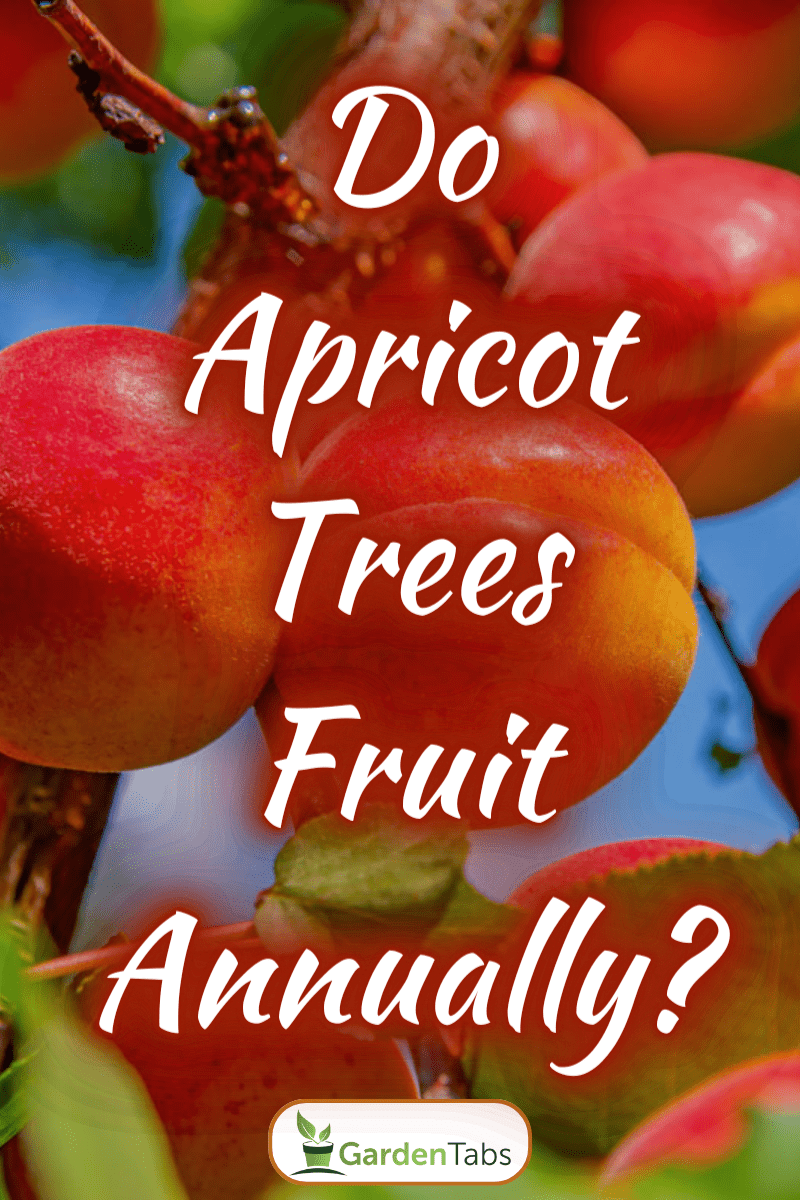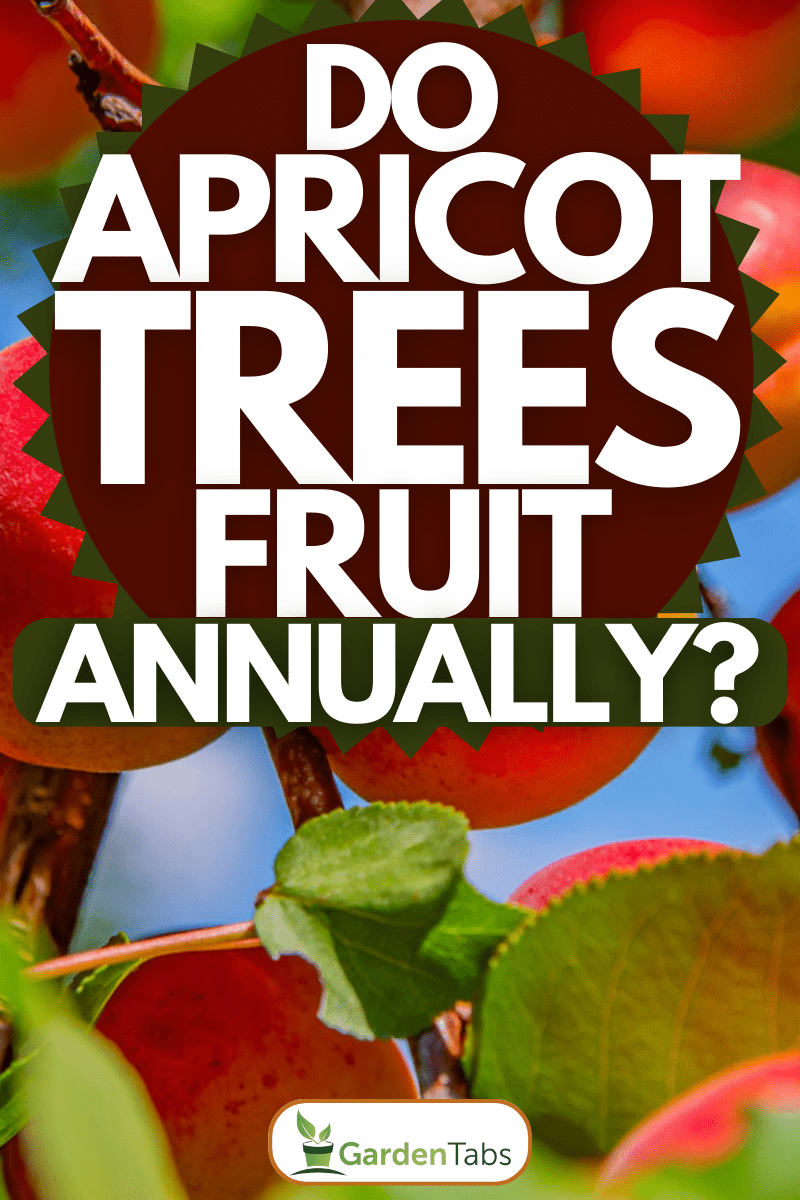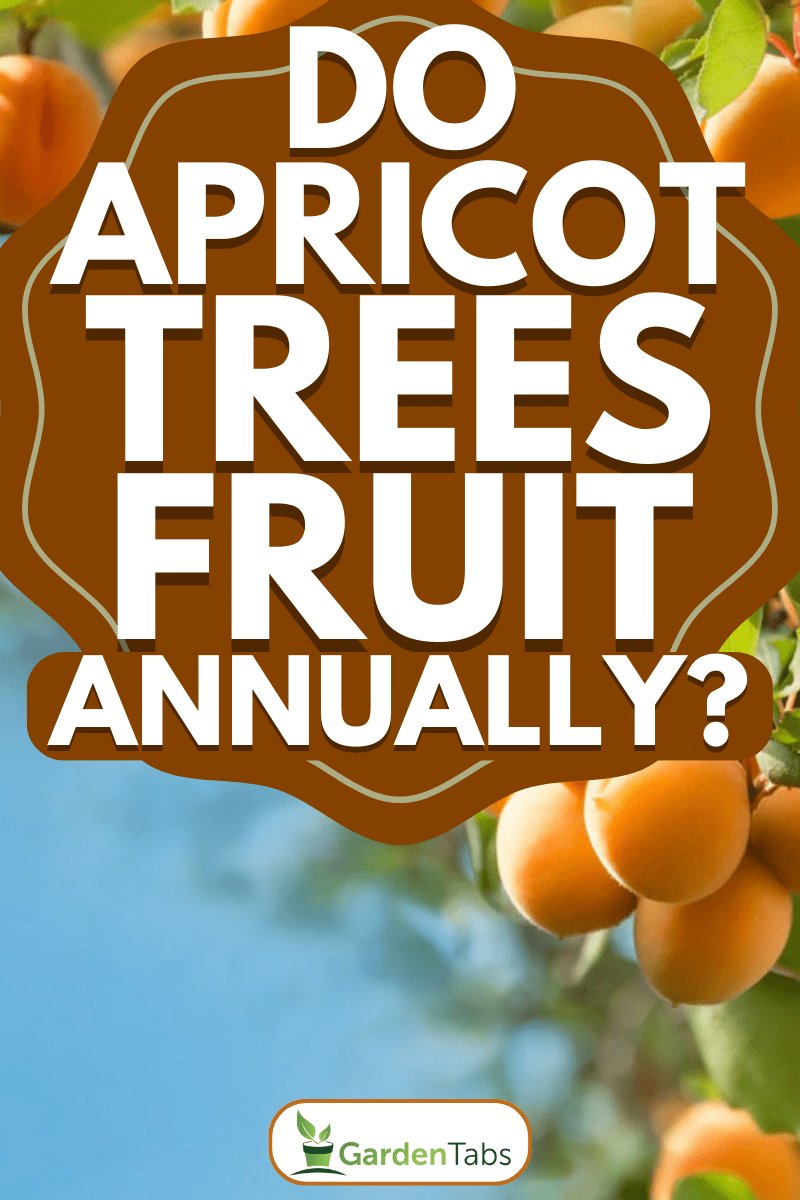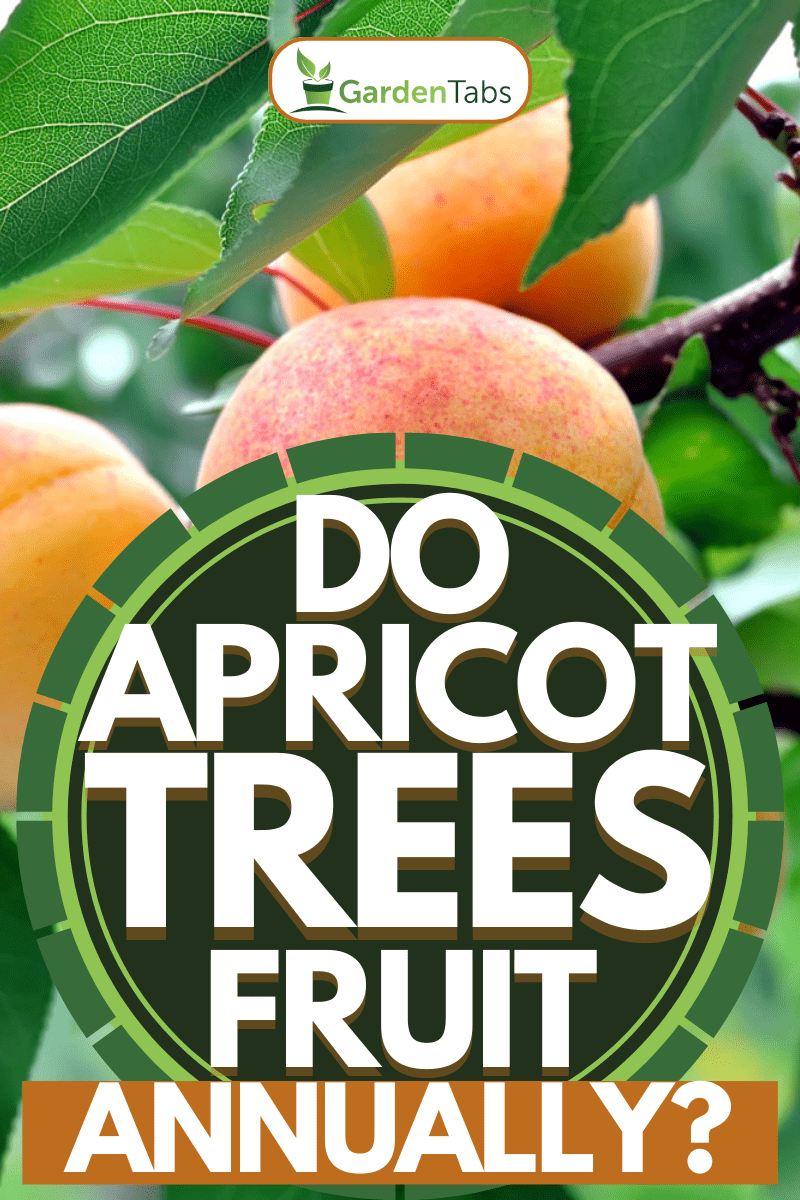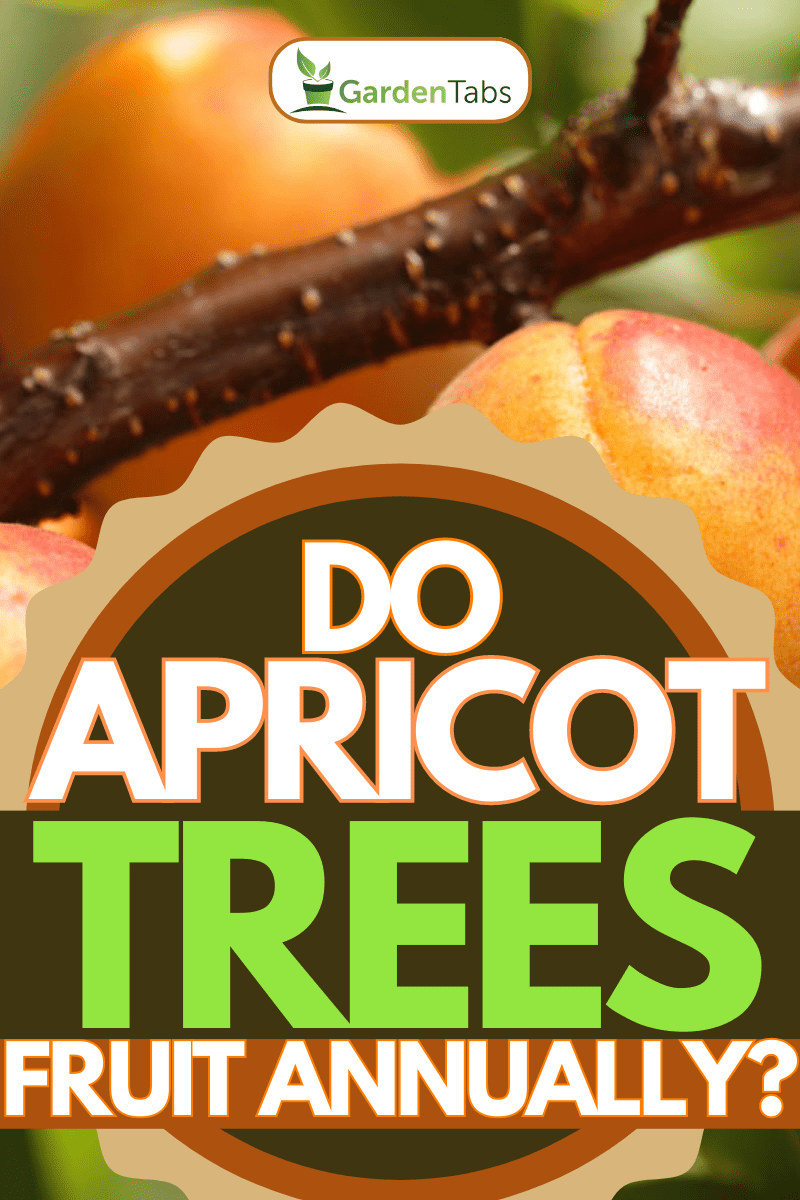If you've just planted an apricot tree in your yard, you wonder if it will produce fruit each year. We have researched this topic for you, and here's what we learned.
It's normal for apricot trees not to produce fruit every year. Some varieties fruit every other year, while others fruit on a three-year cycle.
Other factors may affect the tree's fruit production, including:
- Weather
- Pollination
- Pests
- Maintenance
Knowing an apricot tree's fruiting habits and the factors that affect it will let you maximize your tree's full fruiting potential. So, in this article, we will cover all you need to know about an apricot tree's fruit production. Read on to find out all about it!
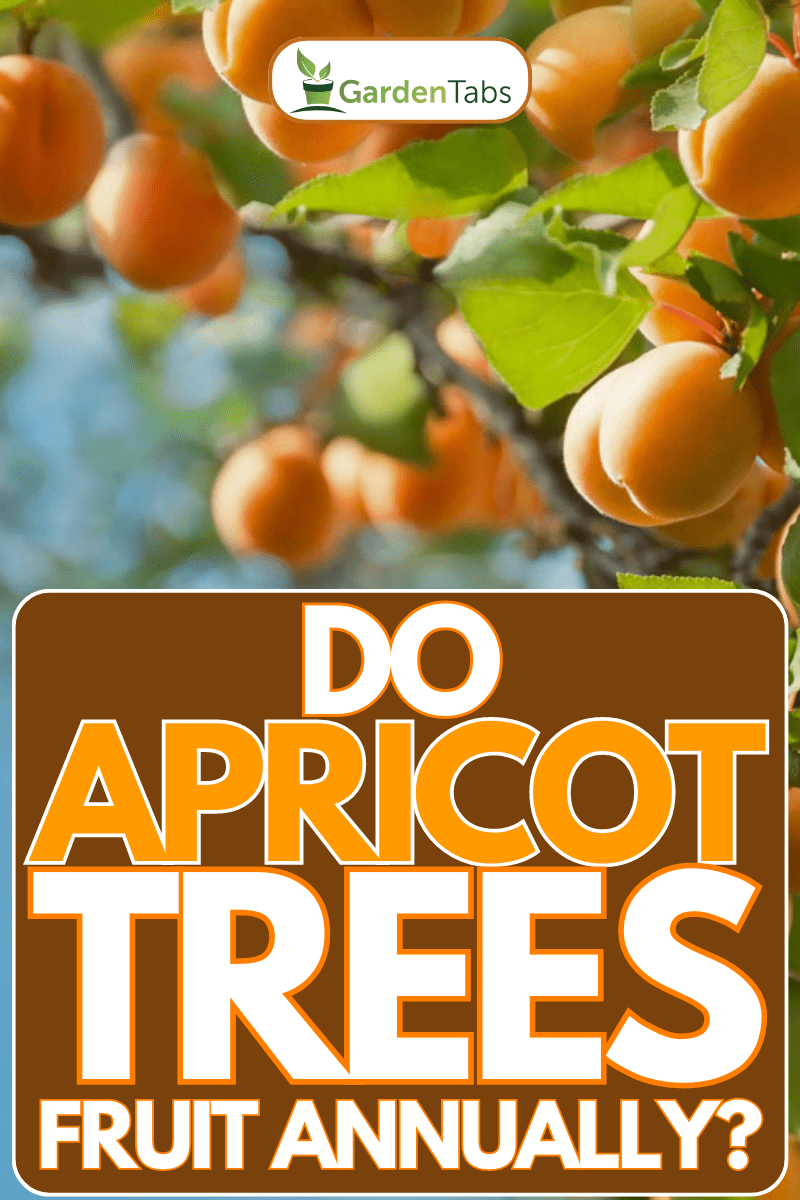
Why Don't Apricot Trees Produce Fruit Every Year?
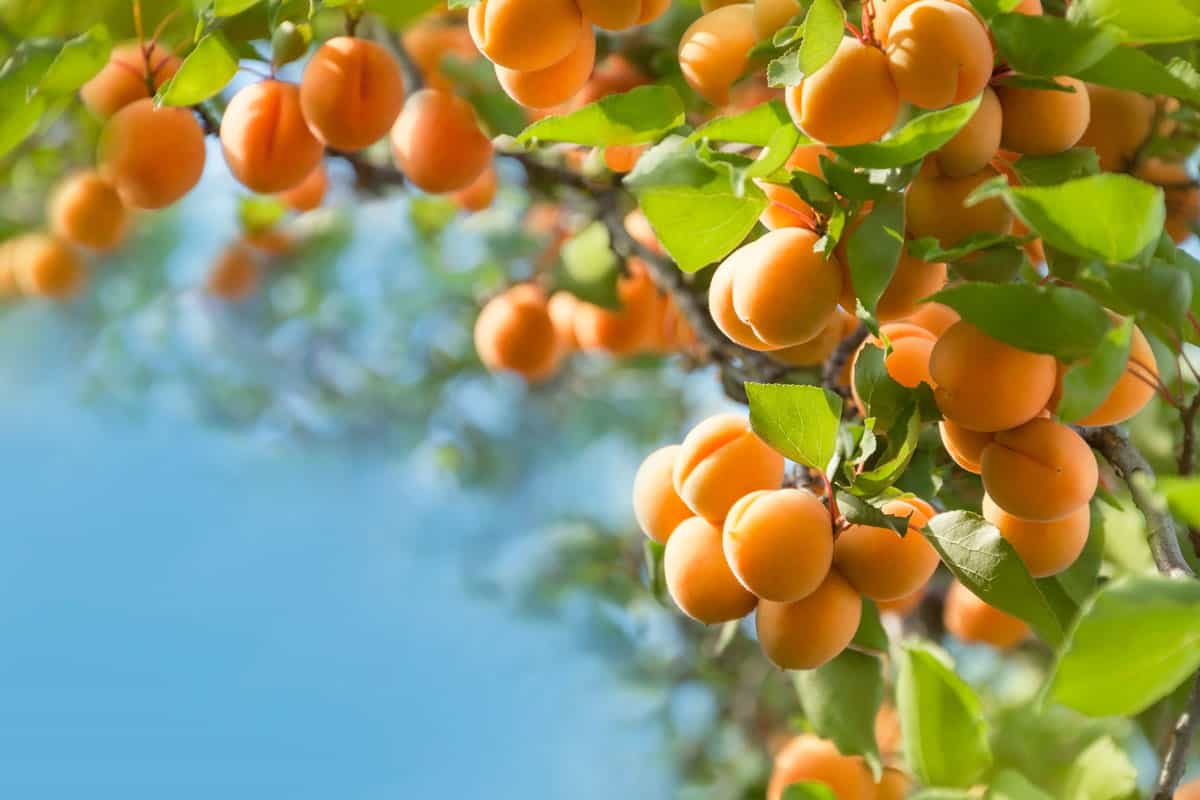
An apricot tree will produce fruit depending on its variety. Apricot trees that are alternate-bearing will only fruit in a two-year cycle, while others fruit once every three years.
But, while it's normal for apricot trees not to produce fruit every year, there are still a lot of other reasons why they won't fruit.
Weather
Apricot trees grow the best in climates with dry, springlike weather. Like all fruit trees, apricot trees form their flower buds in the fall, and spring rains or late-spring frosts can damage the tree's flower buds as they develop.
If you live in an area that has a cold climate, choose a late-blooming or frost-resistant apricot variety.
On the other hand, lack of rain and high winds can also damage the tree's buds. If your weather is not cold enough, it may affect your tree's fruit production. When apricot trees start their reproductive cycle, they need a period of cold weather.
Pollination
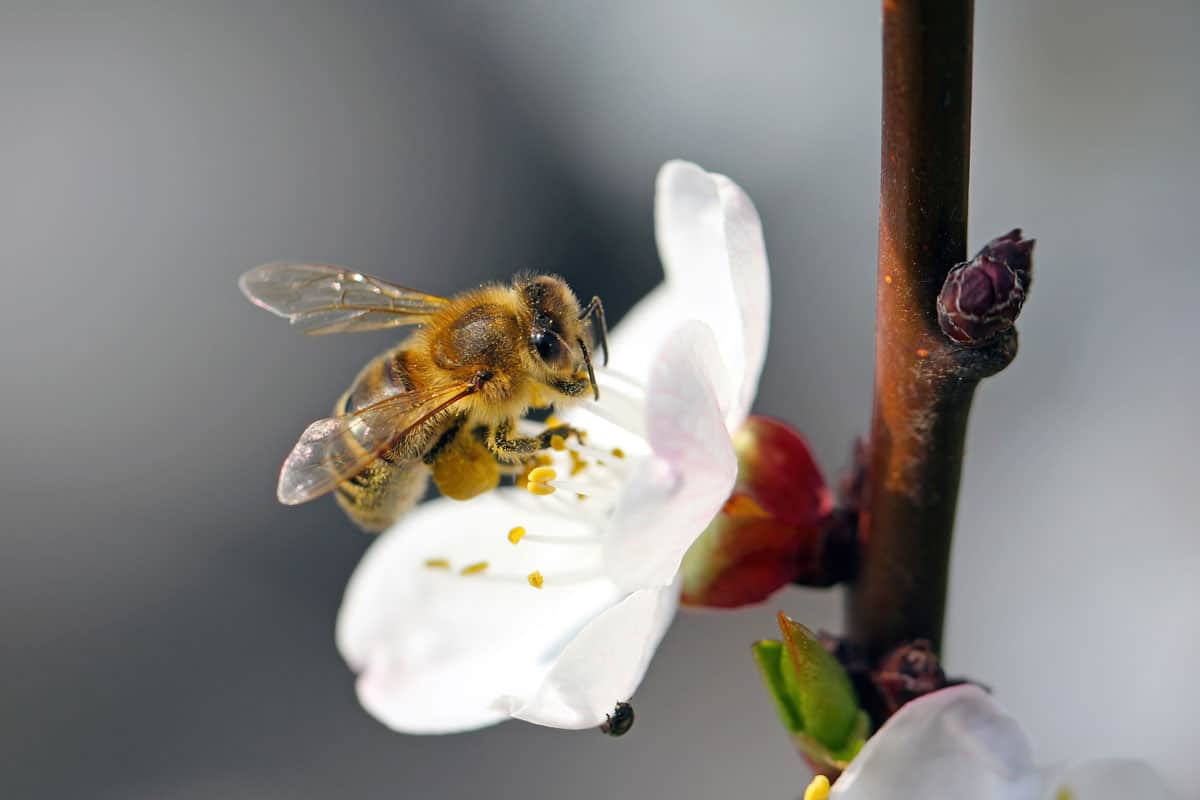
Reduced pollination of your apricot trees can affect fruit production, especially since production depends on pollination. Since apricots are self-fruitful, they may be pollinated by another flower on the same tree.
Cross-pollination from one variety to a different variety of apricot tree is possible. Cross-pollination can also improve the amount of fruit an apricot tree bears.
There are several factors that may affect pollination, such as:
- Temperatures below 55 to 60°F, as bee activity is reduced in these temperatures
- Windy, rainy weather, which can slow down bee-pollinating activities
- The presence of other flowers around the apricot tree may attract pollinators, because fruit trees generally produce less nectar than other flowers.
- Insecticides
Insect pollinators, such as bees, are mostly responsible for the pollination of apricot trees. If their activities are affected, it may cause pollination problems that result in less or no apricot fruit production. If you notice these problems, you should try to fix them.
Pests
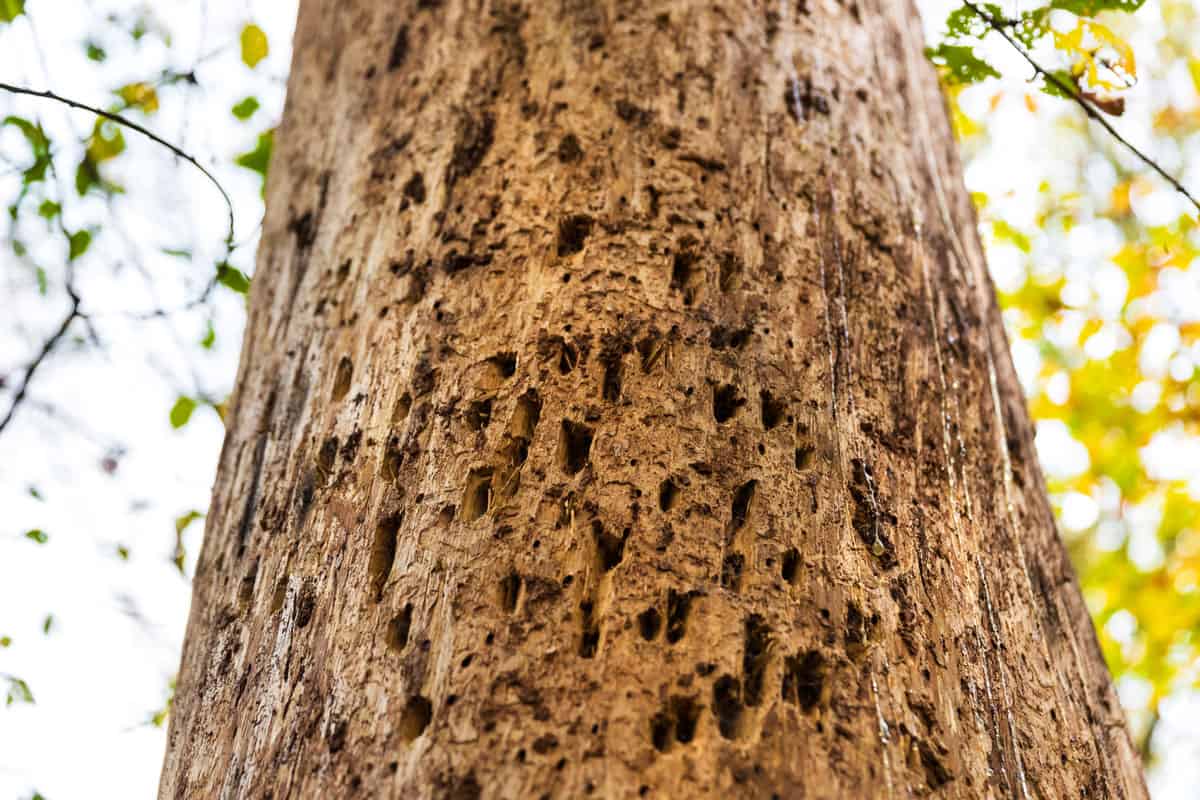
Apricots are susceptible to pest infestations and diseases. Some pests can cause minimal damage, such as pitted fruit or withered leaves. But other pests can damage your tree extensively.
They can destroy fruit crops and spread to other trees in your yard, or even destroy permanently destroy your apricot tree.
Various pests may be attracted to your tree. Most common are sucking and boring insects and other invertebrates like aphids, mites, and carpenter worms.
If you see any signs of pest infestation on your apricot tree, take steps to minimize the damage as soon as possible.
Maintenance
If you don't provide proper care for your apricot tree, it may cause growth and fruit production problems. Taking good care of your apricot tree by giving it good fertilizer, adequate irrigation, and proper pruning will help prevent these problems.
Giving your apricot tree good fertilizer can keep it vigorous and help prevent bacterial infections, such as bacterial blast canker, oak root fungus, and powdery mildew. Applying the right fertilizer will also improve fruit production and tree growth.
If your apricot tree is not properly irrigated, fruit size could be reduced, and the tree's growth could slow down—especially with young trees. This can also cause the leaves to wilt and curl and lead to sunburn.
Good irrigation at regular intervals can prevent these problems and keep your tree healthy.
Proper pruning is an important part of tree care. Apricot trees should be pruned during late summer because they are vulnerable to fungus infections if they are pruned during wet weather. Pruning your apricot tree during August will allow the pruning wounds to heal before winter weather begins.


Check out these electric pruning shears on Amazon.
How Long Do Apricot Trees Take To Fruit?
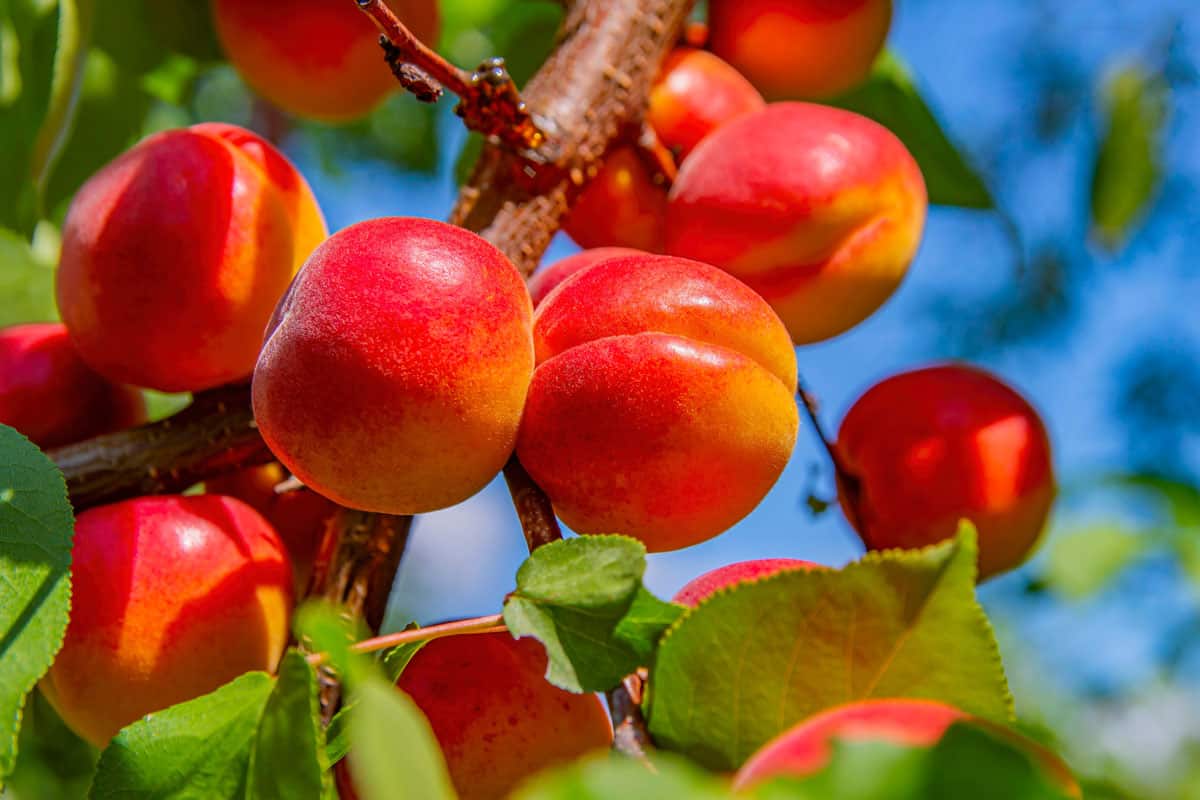
An apricot tree does not produce fruit until about three to four years after planting, but it may be four to six years before you can harvest abundant fruit from your tree.
Once your apricot tree starts producing fruit, it will fruit in years to come, but not necessarily for its entire life.
During an apricot tree's early years, it will be in its foliage-developing stage. You don't want fruits to grow on your trees because they will weaken the tree's growth. Remove the flowers immediately to prevent them from producing fruit.
Once a fruit becomes mature and blooms, it will take between 100 and 120 days before it's ready for harvest. Make sure to take care of your tree and provide sufficient nutrients and water for a successful harvest.
Why Do Apricots Fall Before They Are Ripe?
Premature apricots may fall off the tree because of their built-in safety mechanism. This phenomenon happens whenever an apricot tree produces too many blossoms. The trees drop some of their fruits to lighten the load and save energy and water.
A disease called apricot scab may also be the cause of fruit dropping. This disease results in tiny olive-green spots appearing on the fruits that expand as the fruit grows until it eventually merges into dark blotches.
The fruits infected by this disease may crack open and fall off. Mature fruits may also get infected by this disease, but it will only cause superficial damage.
Another reason why apricots fall off the tree is due to nutrient deficiency. Applying the right fertilizer will help prevent this problem. Applying a complete fruit fertilizer will also provide the tree with a steady supply of vital nutrients.


Check out this fertilizer on Amazon.
How to prevent premature apricots from falling
The best way to prevent fruit from dropping off your apricot tree is by thinning the branches, fruit, or blossoms. By doing this, you can make some space for the fruit and remove the burden caused by the weight and draining of nutrients.
If the dropping is caused by a disease, prune and remove the infected branches and limit any weeds or vegetation around your apricot tree. This will prevent the spreading of the disease or any harmful pests.
How Many Apricots Can One Tree Produce?
On average, a healthy mature apricot tree will produce around 154 lbs of apricots. An apricot orchard may yield up to 22,304 lbs per acre.
This amount will depend on the cultivar, the age of the trees, the plant density, irrigation and water availability, nutrients, pest infestations, disease infections, and environmental conditions during the fruiting season.
The type of apricot you have may also affect your yield. Tsunami, Aurora, Rouge de Sernhac, Nelson, Volšebnyj, Beliana, and Feriana are some varieties that can produce a high yield.
When apricot trees start producing fruit after their third year, they will increase their yield periodically. This means that as the tree gets older, it will produce more and more fruit.
Why Isn't My Apricot Tree Flowering?
Your apricot tree may not be flowering because it's too young. The tree might not flower due to unbalanced nutrients. Apricot trees need a balance between foliage and flower-encouraging nutrients.
If you notice that your tree has too much foliage, apply fertilizers that are rich in phosphorus to trigger flowers to bloom.
You can also prune your tree's leaves and branches to balance the foliage and flowers. But be careful because flowers will generally only bloom on branches that are at least two years old. If you prune old branches, your tree may not flower.
The tree's environment is another crucial factor you should watch out for. Apricot trees need around 700 hours of cold weather in order to produce flowers and fruit.
Apricot trees are not cold-hardy, so be careful and choose the right variety for your region to avoid flower loss due to late frosts.
To Finish Up
We hope that this article answered your questions about the fruiting habits of an apricot tree. Remember that it's normal for apricot trees not to produce fruit every year. Even if your apricot tree doesn't produce fruit every year, you can still make the most of your harvest.
Here are some related articles that may be helpful:
Do Apricot Trees Need Full Sun?

